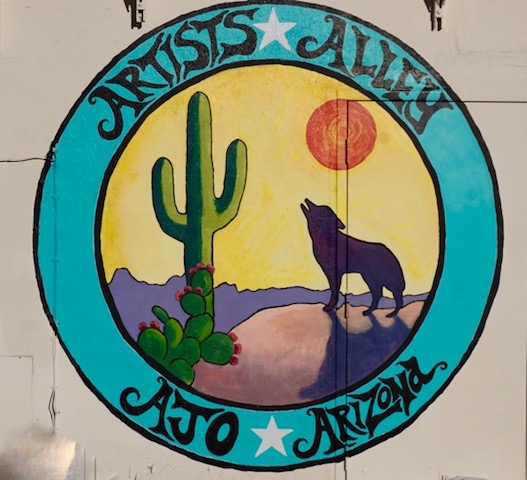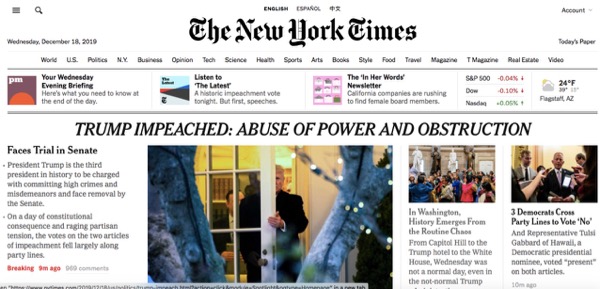Waist Deep In The Big Map, And The Big Fool Said To Push On
The captain told us to ford a river,
That’s how it all begun.
We were — knee deep in the Big Muddy,
But the big fool said to push on. ~~~ “Waist Deep In The Big Muddy” (Peter Seeger, 1967)
[Two Updates below]
Dear Reader: You may not remember The [Notorious] Big Map, but I do. For those unfamiliar with this initiative, please read this before proceeding any further:
(BTW, this “Policy Directive” amounted to what Campbell and his lawyer buddies would call a “post hoc rationalization” – in plain English, it was issued after the fact – but I’m getting ahead of myself.)
The big meeting with environmental leaders in the Commissioner’s Office to sell them the Big Map didn’t go well.
As NJ DEP Commissioner Brad Campbell’s designated “conscience of the Agency” and a former Sierra Club staffer and perceived “liaison” to the enviro’s, I felt it urgent to summarize my thoughts on what went down and make recommendations in an email memorandum to Campbell immediately following the meeting.
His enraged reply came very quickly:
You singlehandedly sabotaged my number one priority. Big Map is the most aggressive effort DEP has ever made to protect the environment and it would be a national model. And you sabotaged it to promote your own agenda. I have fired people for far less. You had better hope I calm down over the weekend or you’re fired too.
[Note: this is not the actual email text, but very, very close to verbatim. The Campbell email can be corroborated by Tim Dillingham, who I sent it to at the time to ask him to talk to Campbell.]
Ouch!
Yes, Campbell was right – I am proud to say that I did sabotage his Big Map fiasco.
But I did so not before repeatedly warning him that it was technically flawed, unworkable, politically infeasible, and would destroy his credibility. And that there were superior alternatives.
Specifically, I met with him personally several times to advise that:
1. Every DEP GIS geek, scientist, and land use permit writer told me that the technical bases for the Big Map – i.e. DEP’s several land use/land cover and natural resource GIS data layers – were not designed for or sufficiently reliable, scaled, accurate, current, or precise to be used for site specific regulatory purposes. Equally, there was no underlying scientific basis for the BM.
2. The Big Map would be perceived as a regulatory usurpation of the voluntary State Development and Redevelopment Plan, an illegal over-reach (ultra vires), and DEP’s institutional and legal arrogation of powers delegated by the Legislature to the State Planning Commission. This would trigger a political backlash from all quarters in Trenton and bad media that not only would make it impossible to realize, but would destroy his credibility and stellar reputation. The backlash might even set back the Department’s efforts across the board, perhaps permanently. The opposition likely would also spill over to impede the Department’s Category One “exceptional waters” protection and Highlands Initiatives that I was working on too.
Campbell – and whomever pitched the idea to him, which I believe was NRDC – had no knowledge of the controversial history, including flaws in State Plan mapping and failure of even modest attempts to incorporate the State Plan in DEP regulatory programs, which began in earnest with Gov. Florio’s Executive Order #114, which mandated that State agencies shall:
Adopt and incorporate as part of their agency programmatic mission, policies which comport with the State Plan and act in a coordinated fashion in investing resources at the State and local level in implementing the State Plan and achieving their programmatic missions.
(someone should ask Marty Bierbaum and John Weingart about how all that went.)
3. The Big Map initiative would not only spur vigorous opposition from the development community, the business community, the State Planning community, the legal community, and the legislature, it would not garner the support of environmental groups and therefore he would be going it alone, with no political support or cover.
4. There were far superior alternatives that did not suffer the flaws in #2, using DEP’s existing regulatory authority and programs, including targeted amendments to the Surface and Groundwater Water Quality Standards, Water Quality Planning Rules, and wetlands, flood hazard, and NJPDES permit rules.
I warned and told Campbell about all this in detail, orally in multiple one-on-one meetings and in writing, BEFORE he pitched the initiative to the Governor’s Office. He did not listen.
I raised all these issues in Campbell’s DEP Management Team, where he briefed the DEP Managers on the Big Map. I had hoped other managers, who supervised the GIS geeks, scientists and permit writers and knew of the flaws would back me up. But they were all yes men and kept quiet, leaving me out on a limb. Lisa Jackson, Campbell’s Assistant Commissioner for Enforcement, who subsequently became DEP Commissioner and Obama EPA Administrator, was the worst when it came to putting her cards on the table at Management Team meetings. She always dealt privately one-on-one with Campbell and never shared her policy views, issues, or opinions with colleagues.
I told Campbell and all others this at the briefing meeting with the Governor’s Office before the Gov. signed off on it. Campbell did not listen and the Gov. Office’s political people didn’t understand the issues I was raising.
I met secretly with staff of the Governor’s Office (Curtis Fisher) to try to convince him to intercede with Gov. McGreevey to derail the whole thing. Either Curtis was unwilling to go to the mat on this or unable to convince the Gov.
So, after repeated efforts to work internally to derail this beast, I really felt no obligation of loyalty to the Commissioner or his Big Map fiasco at the meting with the enviro leaders, and I laid out my critique of it in their presence – a full airing of all the dirt laundry and flaws with Big Map.
Waist deep in the Big Map, and the Big Fool said to push on.
The rest is history.
The Big Map suffered withering criticism, went down in flames and was withdrawn.
Thankfully, I was wrong and it dd not impeded the success of the Category One and Highlands Protection Act initiatives I led.
Of course I was right about the backlash.
The backlash spawned a rollback and it destroyed Campbell, as the NY Times reported (6/26/05)
These Days, a Commissioner Is Under Siege
TRENTON – BRADLEY M. CAMPBELL is either Solomonic or politically hopeless. In a brewing political fight over sprawl, Mr. Campbell, the state’s commissioner of environmental protection, is vilified by builders and environmental advocates alike. And the man he works for, Acting Gov. Richard J. Codey, is not exactly rushing to his side.
Mr. Campbell puzzled just about everybody recently when he said he was suspending work on a new law, known by its Trenton shorthand as “fast track,” that expedites approvals for development projects.
The law — agreed to by Gov. James E. McGreevey last summer and scheduled to take effect next month — had led to a divorce between environmental groups and the Democrats, including Mr. Campbell, whom they had welcomed so warmly in 2002.
“The guy talks out of three sides of his mouth,” said Bill Wolfe, an aide to Mr. Campbell for two years who is now organizing a campaign against the fast-track law. …
“He had the same demeanor as McGreevey,” Mr. Wolfe said. “He tried to please everybody. He always wanted it both ways.”
Two recent developments underscore Mr. Wolfe’s argument.
And I’m glad to have exposed Campbell’s misdeeds after he finally found a pretext to deliver on his threat to fire me.
[Surely, there is no procedure in the DEP Rulemaking Manual – first written by former DEP lawyer Sam Wolfe (no relation) under the direction of Gov. Florio’s DEP Commissioner Scott Weiner I believe – for the Commissioner to distribute drafts of rules for comment to a single individual in the course of the formal rule making process, as Campbell did with NJ’s largest builder.]
Too bad there’s no accountability for Campbell, who dodged the ethics review – and especially for NRDC, who I think blew the smoke of the Big Map concept up Campbell’s ass.
[Update #1: While I’m dishing dirt on Campbell, let me provide some real dirt that I’m ashamed to say I mishandled at the time.
In 2002, I returned to DEP after 7 years at Sierra Club and was working at DEP as Campbell’s policy advisor. I didn’t apply for the job. I was appointed to the McGreevy Transition Team and one day Campbell called me cold, said he was going to be DEP Commissioner and wanted to pick my brain. He invited me to breakfast in Princeton. We had a good conversation after which, explicitly knowing of my prior DEP experience, he offered me a job, upon one condition: loyalty (no leaks). He promised that I could be “the conscience of the Agency”. I accepted, with one condition: I would have influence and good work.
I had a lot of good work and wanted to impress, so I often stated late, till 6 or so.
One night, a friend and female colleague (who is still at DEP) came into my office. She was upset and crying.
She confided that Campbell had asked her to meet him in his office on a work related issue, but then used the meeting to ask her for a date. She felt pressured and very uncomfortable and asked me what to do.
I was dumbstruck and didn’t know what to do. I tried to empathize with and support the woman, but, really had no idea what I should do. So I did nothing other than talk with her for a few moments.
We never discussed the issue again. At the time, I was loyal to Campbell and actually was thinking of asking the woman out myself.
I guess that was my me too moment – and I failed the test. ~~~ end update]
[Update #2 – A Trenton insider, who flies at a higher altitude than I, reached out to me to expand upon the story. It’s worse than I knew. Check this out!:
Campbell announced Big Map before he had final okay from Gov. McGreevey. I ran into Jamie Fox in the statehouse right after Campbell presser he did not know or approve – he was livid . Campbell jumped the gun to get to the press because he was campaigning to be Gov. Rendells chief of staff . His interview was that Saturday. He showed up with the big map news clips and Rendell said to him your job is to work for your boss not promote your self – interview over.
That rings true from my experience. Campbell was incredibly ambitious, media hound, and self promoter. My communications with the Gov. Office were one way – I provided info, analysis and recommendations, but they never told me anything. ~~~ end update]


















